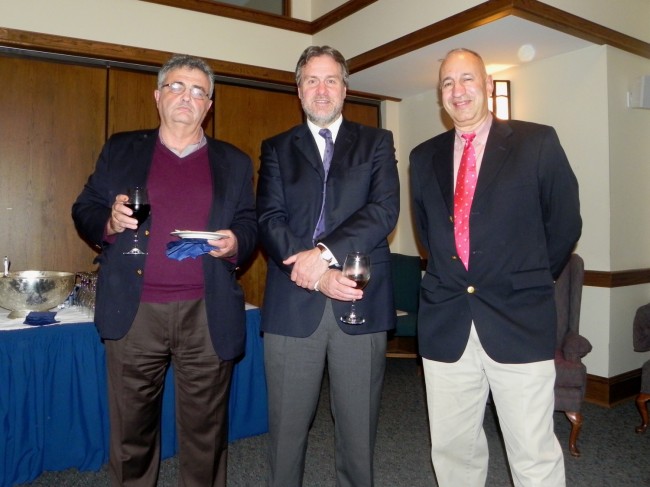
By: Jordan Hillier (Class of 2015)
“On Wednesday, Nov. 9 Whitney Griswold Professor of History at Yale University Ben Kiernan held a lecture at Trinity College about the history of Genocide. He stated that the legal definition of genocide is defined as “deliberate and systematic [acts committed with intent to destroy], in whole or in part, an ethnic, racial, religious, or national group.” He explained to a group of Trinity students what he had learned over the past few years through his extensive study of the term, idea, and reality of genocide. What Kiernan discussed during his lecture was a conclusion he came to, which was that while some incidents reside soundly within the legal definition of “Genocide”, this description cannot encompass all of the episodes that take place. Kiernan walked the audience through the history of genocides and the characteristics of the horrendous acts that take place. No two acts of genocide are alike, however genocidal thinking is generally racist and based on religious ideals.
Three lesser-known traits of genocide, Kiernan advocated, are expansionism, the cult of antiquity and agrarianism, which can all be appplied to most genocidal incidents. Expansionism refers to the ways in which cultures expand, which leads to the exiling of others who are different; similar to how the colonists removed Native Americans from their homes in North America. The cult of antiquity, Kiernan stated, “is the goal [for societies to] recover [a] lost utiopia either by taking revenge on the groups that brought about the decline, or to get rid of groups that in some way hamper progress toward the ideal.” Finally, agrariansim can be contributed to something similar to the Nazi regime, where a single race or group aims to eliminate another kind of individual in attempts to make everyone similar.

As Kiernan explained the history of genocides that have taken place in Ireland, Germany, Cambodia, and even America, it became apparent that genocides have taken place all over theworld for a variety of different reasons. Ben Franklin, Kiernan cited, identified that genocides were unnecessary and he condemned the ways in which the English acted against the Native Americans. Differences of race and color have ben identified as the cause for many genocides, such as in Australia when natives were killed for hunting the white man’s livestock in the 1800s.
Before closing, Kiernan discussed one of the most horrific genocides to take place within the 20th century; the massacre of the Tutsi people in Rwanda.
This genocide is remembered as one of the most expedient in all of history as an estimated 800,000 Tutsi people were massacred by the Hutus, their cultural counterpart, in merely a few months. This genocide evokes characteristics of both the cult of antiquity and agrarianism, as the Hutu people tried to eliminate the Tutsis form their socieity and restore Rwanda to its former glory because the Hutus saw the Tutsis as “running the ethnic centering [of the country] and that Rwanda [had] lost its pristine past.”
In closing, Kiernan reminded that audience that not all killings that take place are genocides and that “genocide is always the result of decisions made by very few individuals who discuss them and put them into action. Genocide is often detectable in advance and we have to recognize that.””
This article was originally published in the The Trinity Tripod, 15 November 2011.